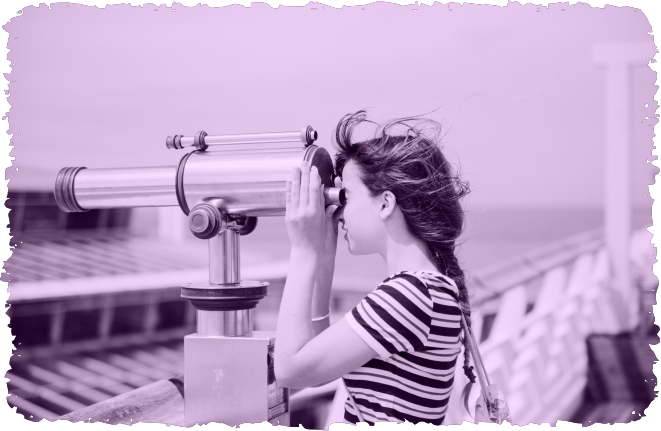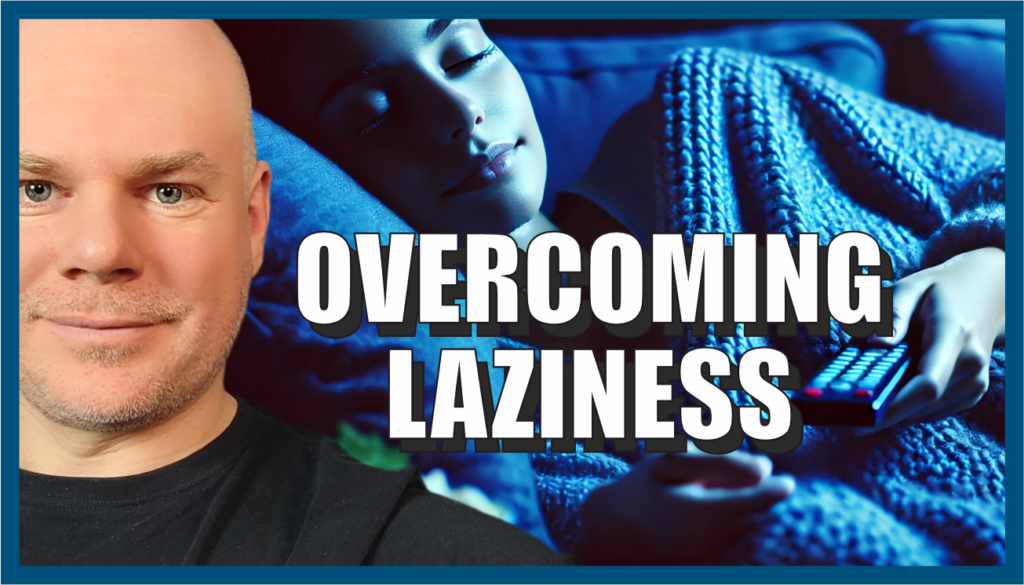In our hectic society, we are constantly bombarded with tons of information from different channels. Throughout our day, we get influenced and even manipulated by instances who want stuff from us. Whether they want to sell us something, make us do something, make us believe in something,.. the purpose of their communication is to achieve something in their interest and not in ours. These days it is very important for us to be very critical and selective and let only the content that we really need to reach us. Furthermore, I invite you to look inside yourself for your doubts and questions and then go on a search for the answers you need. Instead of the whole wide world firing ideas, beliefs, and so-called facts at you… decide to be in your own power and choose for yourself what information you need and where to get it.
When you get in tune with yourself and you are aware of what information you need to grow, it is not enough to read book after book or watch video after video just for the sake of it. We can let information reach us on a very deep level, while we remain very aware of the process. Today I want to share with you some insights on how to actively listen when communicating, how to be critical for information in a good way, and how to exactly receive the message you personally need. It is important to realize that listening is more than just acquiring knowledge. Receiving a message is much more than transferring facts to one another. What matters is what the information does to you and how empowering it is. In order for you to empower yourself from communication, you need to do much more than just hearing what a speaker has to say.
The content of the communication
As I mentioned in the intro, our job of being a listener starts with feeling ourselves and letting the questions we need answers for arise naturally. When we feel we require a certain kind of information in order to grow, then we should reach out and look for it ourselves. We decide when we want to be open for communication and what kind of information we seek and not the other way around.
We can ask ourselves what our goal is and what we need the information for. And after we started listening, watching or reading,… we should ponder critically if the given information is for us or not. So when you start receiving a message, ask yourself what goal the sender of the message has and if it synchronizes with your goal. If the speaker has the purpose to send a certain vibe then ask yourself is that the vibe you need to feel to grow? If the speaker has the purpose to send certain values and beliefs, then ask yourself if those values and beliefs can help you open your mind. If the speaker has the intention to give you a certain insight, then keep listening if you feel you need those insights.
When we are looking for information we need, we have to be pragmatic, critical and open at same time. There is so much information out there, that we can easily lose our time by receiving information we don’t really need. But on the other hand, we need to be open enough so we don’t miss out on information that is very good for us. When the purpose of the sender or speaker aligns with our purpose, it is a strong indication that this communication is good for us and that the message is useful. Don’t let yourself be seduced too easily by infotainment. Reading or listening has to be fun but also has to be useful unless we just want to be relax and be entertained.
The personal space within you
When I listen to someone speaking, I strongly appreciate if the content is very elastic. With this I mean that the message that is given is very open in order for us to use it for our own personal needs. When the message is very strict, based on facts and not open for interpretation, it is difficult to make it our own.
Good content is open and leaves enough space between the lines of our own ideas, interpretations and thoughts to emerge. That’s why excellent speakers and good teachers are real storytellers. They use examples, metaphors, and abstract things to stimulate the imagination of the listeners. The message is not the possession of the speaker. All knowledge should be shared and it belongs to everyone and should have the potential for everyone to make it their own. Even a literal speaker should not talk too fast and leave enough space between important sentences so the listeners have enough time to get reached deeply and let everything sink in.
A good message is a gift from the speaker to the listener and not the other way around. The purpose of the speaker is to empower and enrich the listener and not to fulfill his own ego. Good communication is achieved when the receiver is inspired to make his own story. That story doesn’t even have something to do with the original message. Inspiration works in mysterious ways. So when content is very open and elastic, new and beautiful stories emerge in the minds of listeners about completely different subjects. And that’s perfectly OK.
It is always beautiful if a speaker is aware of this and even stimulates this process. For example, by asking questions. Not to expect an answer, but to trigger the creation of thoughts. That’s why metaphors and stories are so important. A good speaker could ask then what you would do if you were the character in the story and this triggers your only input and creativity. This is not possible when a speaker only sums up the facts or wants to convince you of something. That is not empowerment but lecturing.
Observing the messenger
Personally, my opinion is that the messenger is as important as the message itself… if not more. A person can tell us many interesting things, but if we don’t connect with him or her… much of the message will get lost. In order for us to get the best insights from a communication, we have to trust the messenger and feel connected with him. The messenger needs to in sync and be a representative for the message.
For starters, the tone of a voice is very insightful. With the tone of voice, you can really feel in which state of consciousness the messenger is. You can feel what kind of emotions he is expressing while talking. He can talk from a very loving vibe, but he can also be resentful, frustrated or not confident. When a person is talking from his heart, is calm and speaks with confidence… then probably you can learn much more from this person rather than if he were talk loudly, arrogantly, appearing snappy or robotic.
There is also much to learn by observing how our messenger and looks and moves. While you listen to the actual message, also look at the facial expressions and especially the look in their eyes. Also don’t forget to notice the gestures and also the clothes and accessories. Choose wisely to who you want to listen and before you let information touch you deeply, first feel if you can trust the messenger.
Observing the environment
Not only the actual person who is talking makes up the total messenger, but also the environment where the person resides. You can critically observe if what is spoken about is also in alliance with the surroundings. How does the interior look? The colors? Are there objects of significance or with symbolic value? Is there balance, peace and serenity? Are there things in motion? What is happening while the person is talking? The energy of communication has also an impact on the environment. This can be very subtle but also very obvious. Are there things happening that are sabotaging the communication? Or maybe there are subtle coincidences and things happening that are in harmony and represent the message.
Also the other listeners, also called “receivers”, are part of the environment. If there are other people besides you around you, it is very interesting also to observe them and notice carefully what kind of impact the speaker and his message have on them. You can notice their emotions, level of concentration, gestures and facial expressions. You can also scrutinize how people are looking, you can feel the vibe and notice in general what kind of people they are who are there with you listening to the message.
Observing yourself, the receiver
Receiving communication is not only about you understanding the message, but also about observing what it does with you on every level. You can feel many things inside yourself during the process of listening. You can observe your thoughts or memories that may arise and maybe get insights and real aha-moments. You can also get inspired and attain new ideas. But of course there are also feelings. The message can reach you also on an emotional level. Emotions are like the values of our thoughts and it’s important to allow and feel them all. Notice carefully how our body reacts with every message with that comes certain emotions and urges.
We can also observe how our ego reacts to the communication. Our ego is our defense mechanism and protects our identity. So when we listen to a message, our ego tells us if it aligns with our values and beliefs or if it attacks what we are standing for. This process is often a trap for all of us. Our ego mostly tries to maintain the status quo and is very skeptical for new and different ideas. It can use feelings of pride, stubbornness to deny certain information to be accepted. The ego has the tendency to be overprotective and will resist often a lot of good and safe information that can help us grow. It is very important to know the mechanisms of our ego very well, so we can use it as a helpful filter. When we are listening to a speaker and we feel resistance, we have to ask ourselves why we are resistant to it. Sometimes our ego does a good job protecting us from harmful messages if they are not aligned with our core values. But in many cases, feeling resistant to new ideas should be an invitation to question our belief systems and to grow closer to the truth.
Observing your reactions
The last element we can learn from when we listen to the message is by observing our reaction to it. First, we can notice if the communication gives us an urge to react or not. If the message doesn’t give us a boost of energy, it means that maybe the message was not meant for us, it was not powerful enough or we didn’t let it reach us deeply enough. We can find out then what is the reason and learn from this as well.
If we are touched by the message and we feel the energy to react, it is very interesting to observe these reactions and to see where they are coming from. We can feel inspired and start making stories of our own. We can start speaking as well and spreading the message enhanced by our input. The message can change us practically and make us live our lives differently, based on a higher level of truth.
We can also react back to the sender of the message in different ways. When we feel gratitude we can share with him or her our appreciation. We can get more curious and start asking questions as well. And of course our ego can make us react, whether appropriately or inappropriately. When the message is full of lies and deceit, we need our ego to react and tell the messenger we decide to stay in our hearts. But as we all know, most of the times our ego is reacting in mean and aggressive ways. We all can remember episodes where we reacted inappropriately because of pride and a closed mind. This is absolutely OK and we can learn a lot from this.
Conclusion
Active listening is a form of listening in a way that is empowers us. It is more than just hearing someone talk. A listener is not a passive receiver of information. As a listener we decide for ourselves to be in control instead of being manipulated by an overflow of information. Active listening starts with an introspection where we feel the kind of information we need to grow. The second step is that we reach out and look for his information ourselves. After we found the right sources and senders, we tried to synchronize with their vibe and consciously decide to let their message reach us. It is allowing yourself to be open for not only the actual message but also for the messenger, the environment and the impact on you. If you are open for all these instances during communication and you are actively observing them with full awareness… You optimize your chances to empower yourself and to grow.
Listening doesn’t stop after the speaker stops talking. We keep listening and observing ourselves. We watch carefully what this information does with us and what we do with it. We don’t want to waste our time and passively watch video after video and read book after book. When we receive a powerful message, it is like a seed planted in us. We need to nurture that seed and give it enough water. If we ignore it and move immediately to the next source of communication, the seed will decay. The more mindful we can be with the information that is coming to us and the more we decide to actively use it, the more we can grow.



